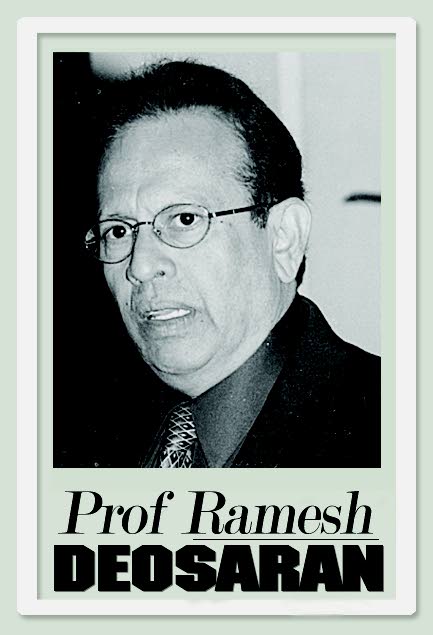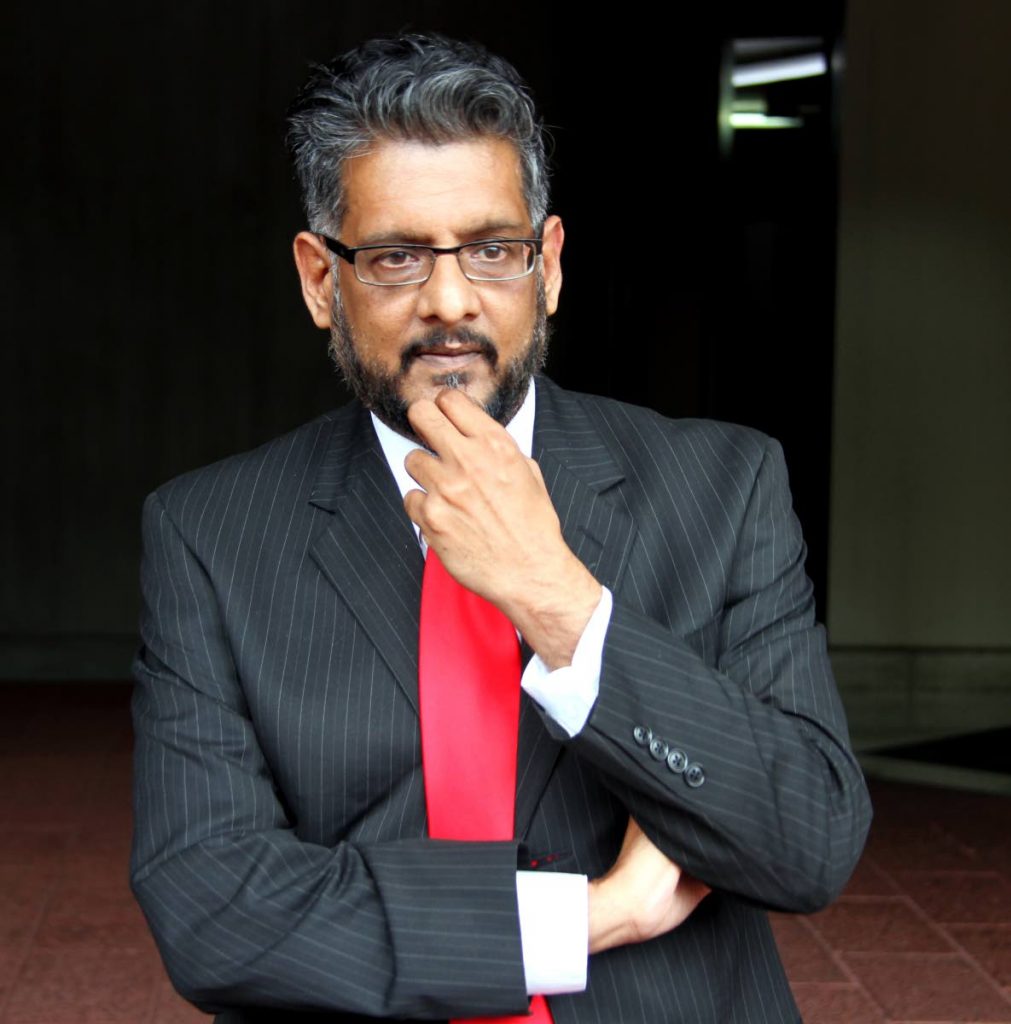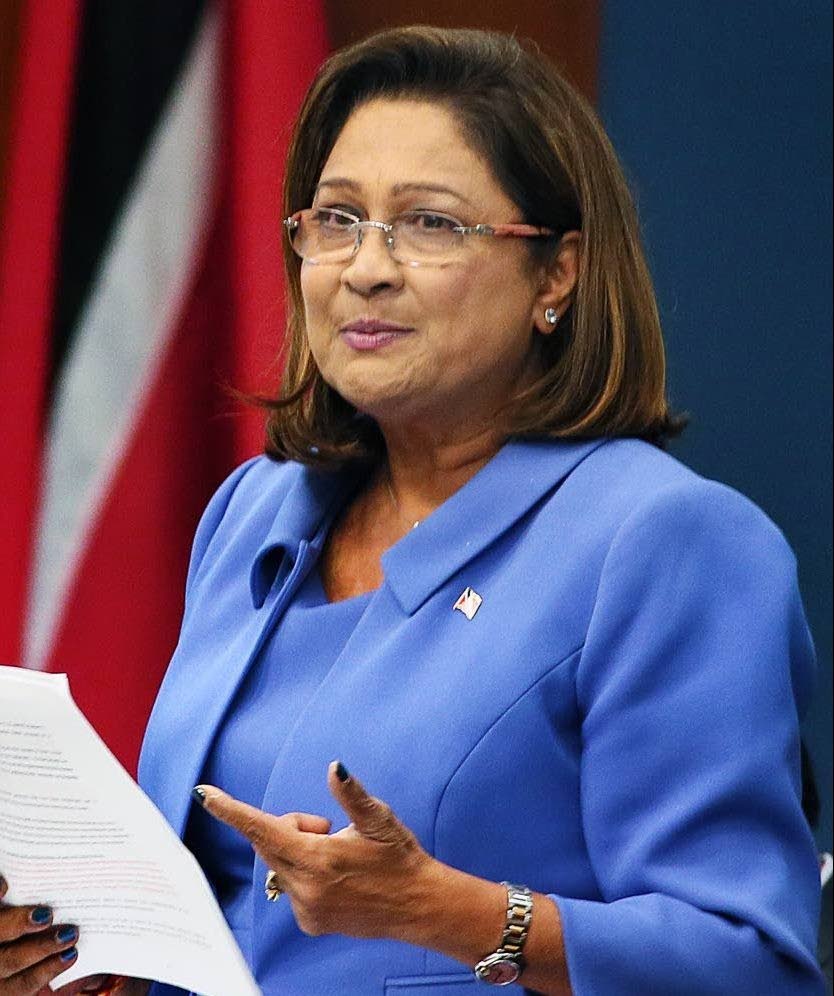Devant, joker or hero?

Joke. This means “a thing done or said to excite laughter.” Is this what former United National Congress (UNC) minister Devant Maharaj is doing by exposing the telephone numbers of politicians, including Prime Minister Dr Keith Rowley and other ministers? Is he hero, meaning “a person noted or admired for courage or outstanding achievements.” My interest is on how this controversy is connected to the kind of deficit-ridden democracy this country has and the challenges for remedy. Ministers get burdened by bureaucracy while citizens get frustrated by the disconnection.
Devant received substantial media space. “Nuisance or saviour?” asked one newspaper in its two-page feature on Devant (Guardian, December 23). The headline was “Devant takes social activism to dizzying height.” Devant said: “When they want your vote they sit and talk with you. Then they get into office and you can’t see them, let alone reach them.”

Rev Robert Dash wrote: “It is impossible (for a citizen) to speak to a minister on his/her cellphone. Why should this culture be perpetuated in our nation? Ministers and MPs are employees of the people,” (Express December 26). Brian Plummer added: “The present representative government system has become ineffective in improving our citizens’ lives,” (Express December 21). So too felt Gregory Wight who called upon citizens to bring direct pressure on politicians for the country’s progress (Express, December 4).
Calling Devant “a one-man wrecking crew who time after time has put his head on a block to challenge the Government on many issues,” vigilante Hindu pundit Satyanand Maharaj boasted “Devant represents all of us,” (Express, December 14).

However, rebuking Devant for releasing his “new” telephone number, Dr Rowley called Devant a mischief-maker and “a dangerous liar.” AG Faris Al-Rawi, ministers Stuart Young and Kazim Hosein show mixed feelings. Defending Devant, Opposition Leader Kamla Persad-Bissessar asks Dr Rowley “to grow up.” Devant may even be forgiven with a “safe seat.”
An Express editorial asked Devant to cool his adventurism. Describing Devant’s action as “childish and irresponsible,” Newsday columnist Marina Salandy-Brown added: “It would seem that the former minister was more interested in drawing attention to himself and his party than to the outcome he pretends to be seeking.” (December 16) But sounding like accountability-seeker Afra Raymond, Devant said: “It is to make government accountability a front-burner issue.” Social media went wild.

The disconnect resonates, as if waiting on a credible anti-establishment trigger for mobilisation. We see it rising in Britain, US, France, Hungary, Spain, Greece, Italy and Latin America. The promises of democracy and representative government have been faltering for over 20 years now. Elected politicians have grown accustomed to rely more on legal rather than on legitimate authority. So protected and feeling no moral obligation, many ignore you and, as I learnt, even those awarded the nation’s highest honour (ORTT). Far less others. Political favouritism aggravates.
This is the media-driven space that Devant and his supporters exploit. Our politicians, past, present and future, must take serious note. There is danger ahead with decreasing room for political arrogance and shut-door policies in the face of open-door media. Creeping up is the rise of individual conscience over party loyalty. Referring to Guyanese MP Charandass Persaud in bringing down the coalition Guyanese government, Ashton Brereton wrote: “The oft-displayed, thinly disguised tyranny of the majority legally exercised by a democratically elected government–single party or coalition–needs to be kept in check for the long-term good of the people.” (Newsday, December 25).
Regarding the increasing failures of representative government and the need for remedy, I submit: (1) The foundation of our democracy is fair and free elections whereby politicians publicly campaign for the votes of citizens, promising integrity and accountability. (2) Such campaigns carry major, loud-speakered pledges by politicians to serve citizens without fear or favour, to be “servants, not masters,” to hear citizens’ problems, etc. And so, citizens’ expectations and hopes are raised.
(3) Once elected, the platform promises get forgotten, bureaucracy and gatekeepers are set up, the disconnect begins be it for broken bridges, collapsed roads, crime-ridden streets, political discrimination, flooding, transportation, etc. Until things reach crisis, or tyres burnt. (4) True, ministers and other politicians get so busy with day-to-day administration that answering every phone call is not possible. Citizen frustrations grow.
Recommendations, briefly: (1) Constitutional reform whereby candidates are elected as full-time members of Parliament, thus giving them full time to answer the phone regarding their constituents’ needs with the citizens’ right to recall (2) Ministers should not be drawn from the elected Parliament but from available nationwide top-level expertise with a touch of loyalty. Difficult for elected ministers to serve constituents. (3) The senate, a democratic anomaly, should be replaced with an expanded, more representative uni-camera parliament and strengthened set of joint select committees where any citizen can petition to appear. (4) All statutory meetings of regional corporations and Tobago House of Assembly open to citizens, to ask questions, present pleas.
This type of representative government would be a big step towards easing the need for exposing politicians’ phone numbers while giving citizens greater rights to connect with the politicians they elect. People who cannot bear this democratic responsibility should not enter politics. My New Year’s wish.


Comments
"Devant, joker or hero?"